[ad_1]
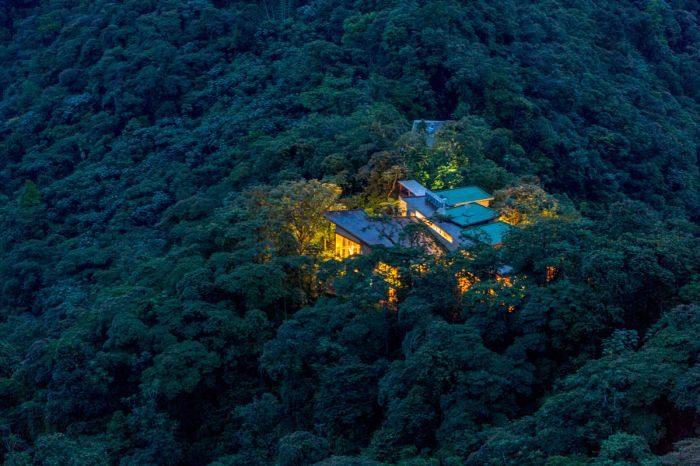
Metropolitan Touring
.The multi-lane highway from Quito, Capital of Ecuador, 9500 feet above sea level, eventually became a bumpy road, then be a dirt path, then, only tire tracks. We moved backward: from urban city to small village, to occasional hut, and then into the depths of green nature. We crossed the equator, and finally, three hours from Quito, we were inside a rainforest, hidden in a cloud forest, hoping the desiccated, muddy tire tracks and our guide lead us to Mashpi Lodge.
It is now a luxury retreat, built neither as a luxury lodge nor a wellness retreat, but originally as a botanical research center. There, it allowed naturalists, botanists, entomologists, and arborists to move into the cloud forest to study rainforest species, both extant and emerging, with new species being discovered only here. The three we saw were the Glass Frog, a small translucent amphibian, the Mashpi Magnolia, a flowering tree with white magnolias, and the Lepanthes mashpica orchid. We were told, by the young lead Botanist there, that he and his colleagues sensed there were many other species in the forests yet unknown, but as he said with both happiness and gravity, “We will discover!”
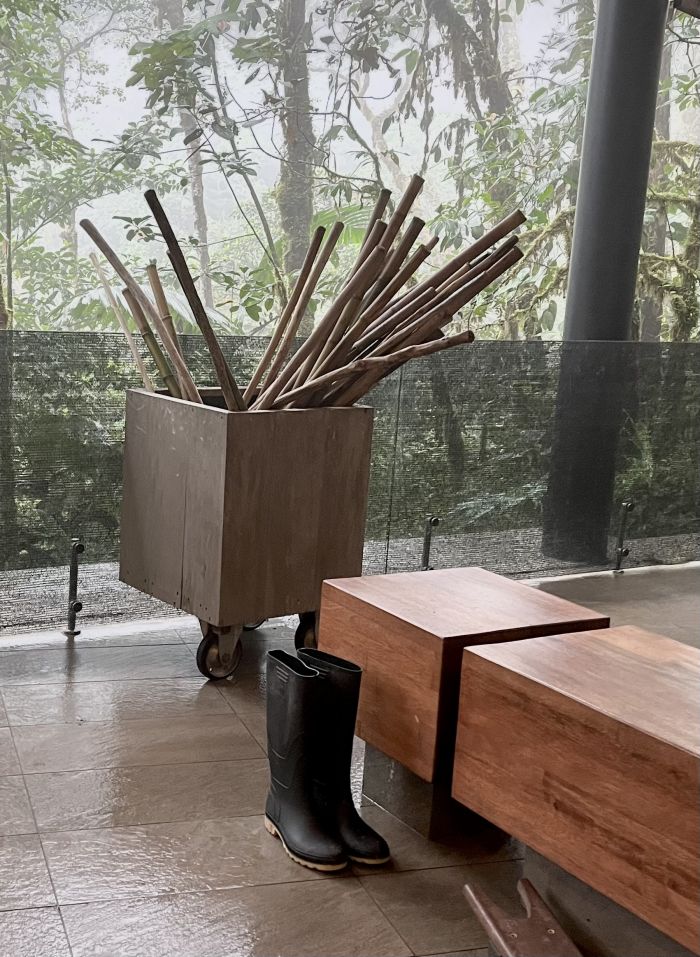
5:00AM, walking sticks and a pair of hiking boots.Ready to go!
Eventually, it was thought that non-scientists should enjoy this green quiet also. Thus, here we were.
The Mashpi forest is home to close to 500 species of birds –including 36 endemic species — found only here. In these forests, 32 hummingbird species have been identified also. Located close to the lodge, there are unique, sensory-driven experiences that allow Mashpi guests to become part of the forest, by becoming one with it. “How can you tell the dancer from the dance?” the Irish poet Yeats asked. We thought of this sensuous paradox as we were allowed on two steel contraptions that allowed us to have drone-like views of the forest. With both the SkyBike and the DragonFly, we became, if even for a short time, one with the forest as we moved above the trees, then below, always hooked to steel cables.
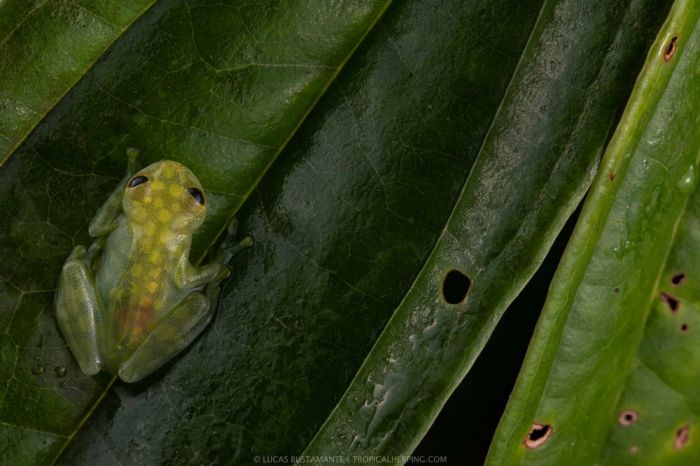
Lucas Buscamente
The Glass Frog, discovered in the Mashpi Rainforest, Ecuador
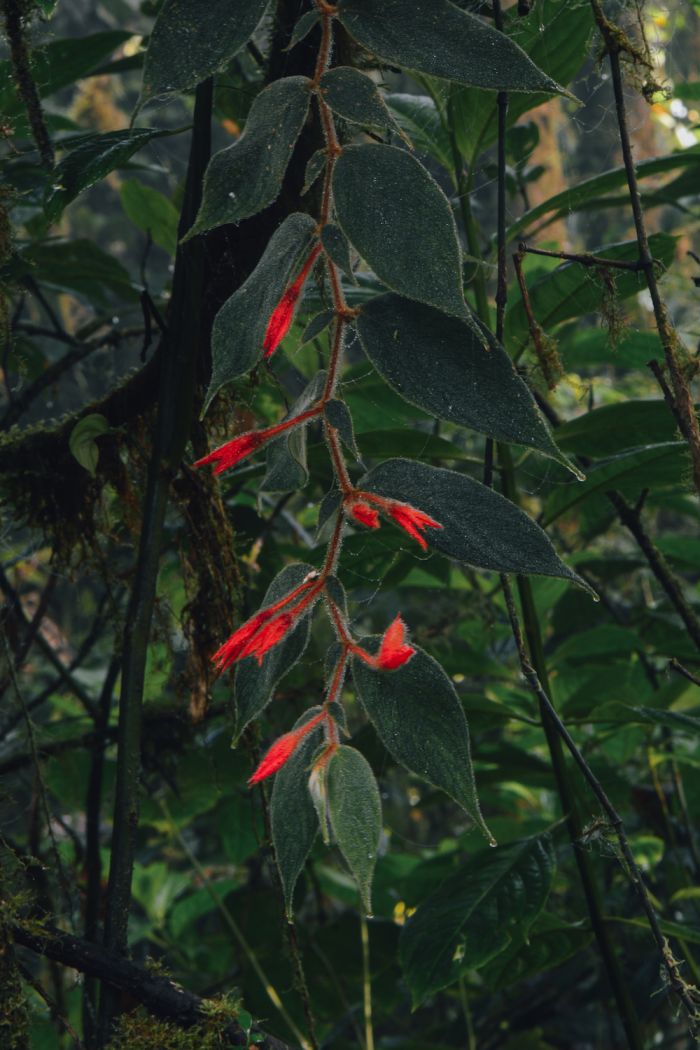
New Orchid Species found at Mashpi — Lephanthes mashpica.
Both were novel experiences as we became part if the green forest dance.
The Sky Bike is a steel-enclosed contraption where one person bicycles and the other one looks out onto the forest from above. The Dragonfly is a cable enclosed Gondola, that moves from beginning of the cloud forest to the end, and back. In both, we saw the expanse of this forest, with the waterfalls where the Glass Frog was discovered. Then, we experienced the truly exceptional: from the deep green of the trees flew a cerulean blue butterfly, flying quickly from tree to tree. “Look!” said our guide, “A Morpho butterfly!” It was an experience of a lifetime, that splash of incandescent blue in the forest of greenery, lasting only a few seconds, but forever in memory.
Upon returning to the steel cable cage from which the Dragon Fly was housed, we felt we had more attuned vision, seeing more colorful flowers, greener lizards, and a more colorful sky than before. We walked about ½ mile back to the lodge, hungry for lunch.
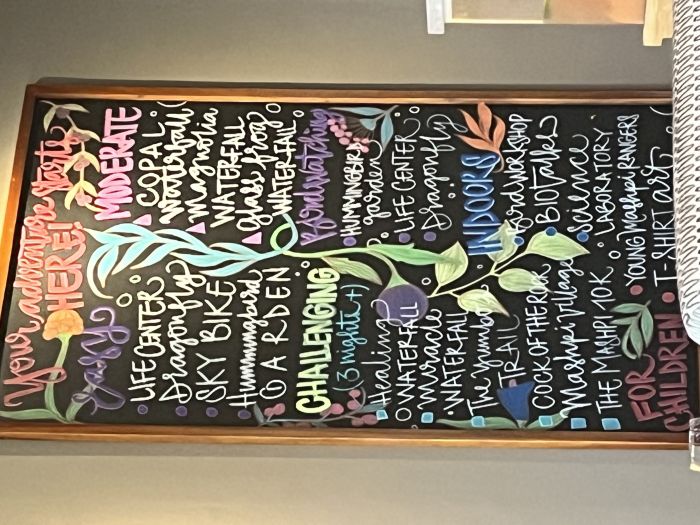
Susan Kime – Mashpi activites
The many who make the Mashpi pilgrimage are often those who love deep forest exploration — there are evening walks, where the Mashpi flashlights illuminate night creatures — the reflected irises of their eyes looking out at us ad we looked at them. We respected their silence and heard only the occasional Howler monkey and the quick movement of lizards moving away from us. The dark quiet is different from the day quiet — in the darkness hike there is a kind of deep vigilance, as at first, we could see only with flashlights, but as we walked further, we became enchanted — one with the forest — enough to turn off the electricity and walked by the lights of moon and stars. Here, we realized we could see well, as the evening sky was bright with Southern Hemisphere stars.
At Mahspi, there were many guests who were fascinated by nature, many of whom loved night walks and early morning walks also. At 5:00AM, many were ready to go, with backpacks, heavy boots, and walking sticks, provided by Mashpi, out into the wilderness, into the unexplored morning, seeing the waterfalls, hummingbirds, butterflies, and in our experience, the unexpected weasel.
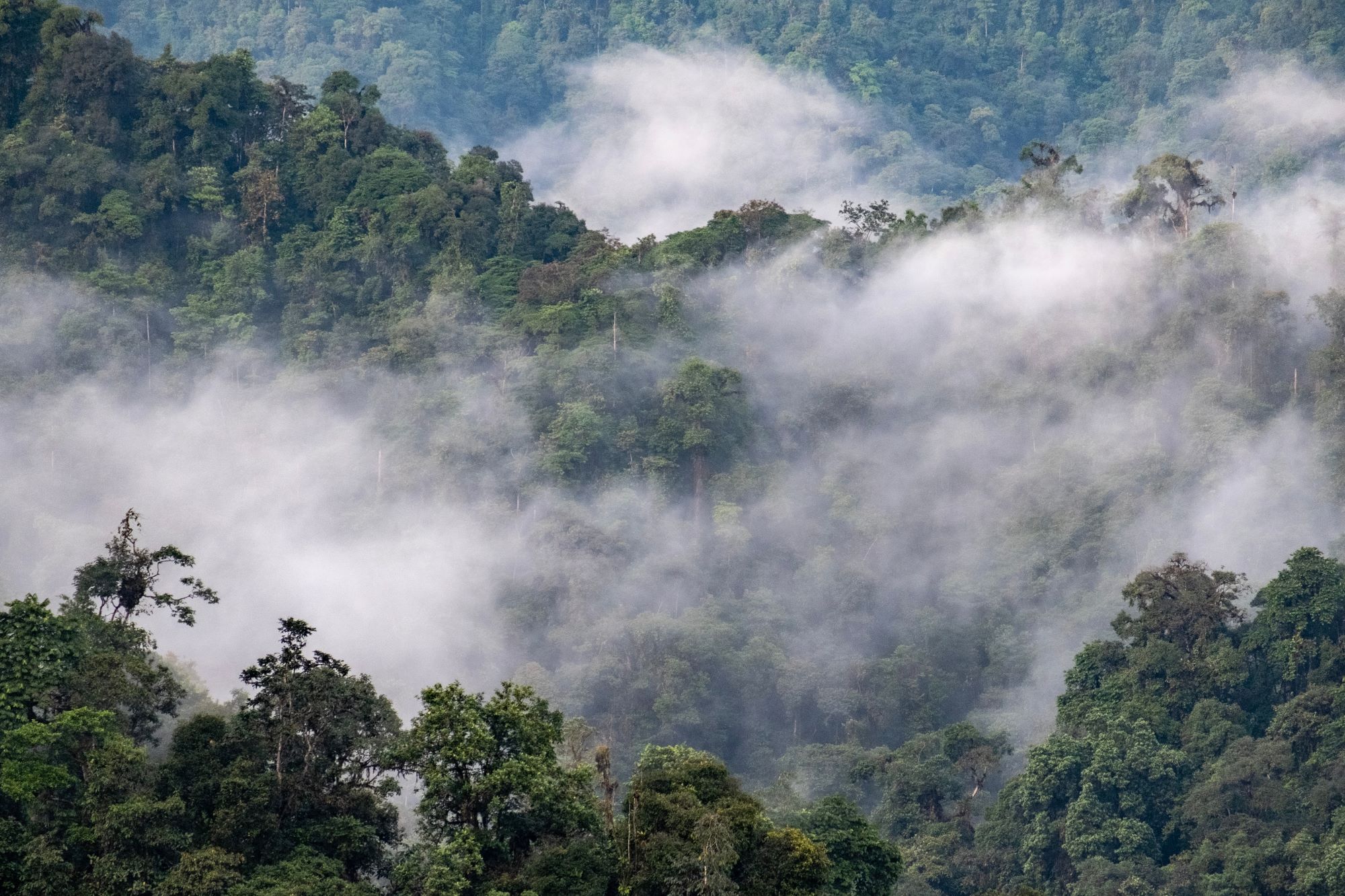
Shutterstock
Upon our leaving, we went to say goodbye to the young naturalist who explained his belief and interest in finding new plant and animal species in the Cloud Forest. We asked him if there was a lesson learned from the forest. He said there was one, a consistent one: nothing ever truly dies in the forest. Dying trees are hosts to new ones, flowers also become hosts to others as the seeds move into more fertile ground, provided by dying plants, and tree bark.
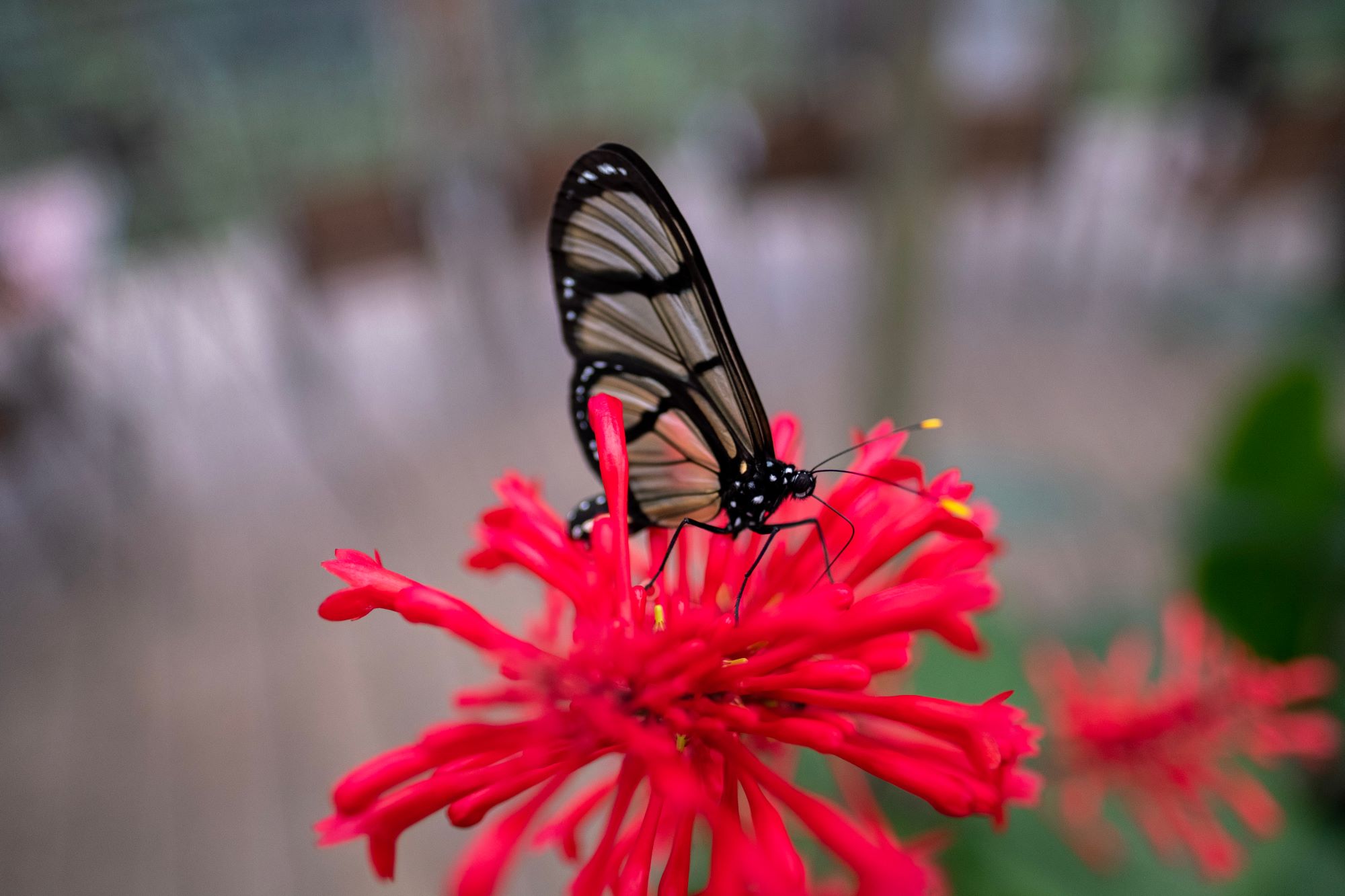
Shutterstock
As we left the green Mashpi magic and moved back into more familiar urban territory, moving from tire tracks to the bumpy washboard road, to highway, we also moved from wildness to urban. But as we moved, we felt as if we had become both, alive, well, yet providing forest intuition and urban insight, one taking from the other, giving an inexplicable gift of knowing how to live and love within both.
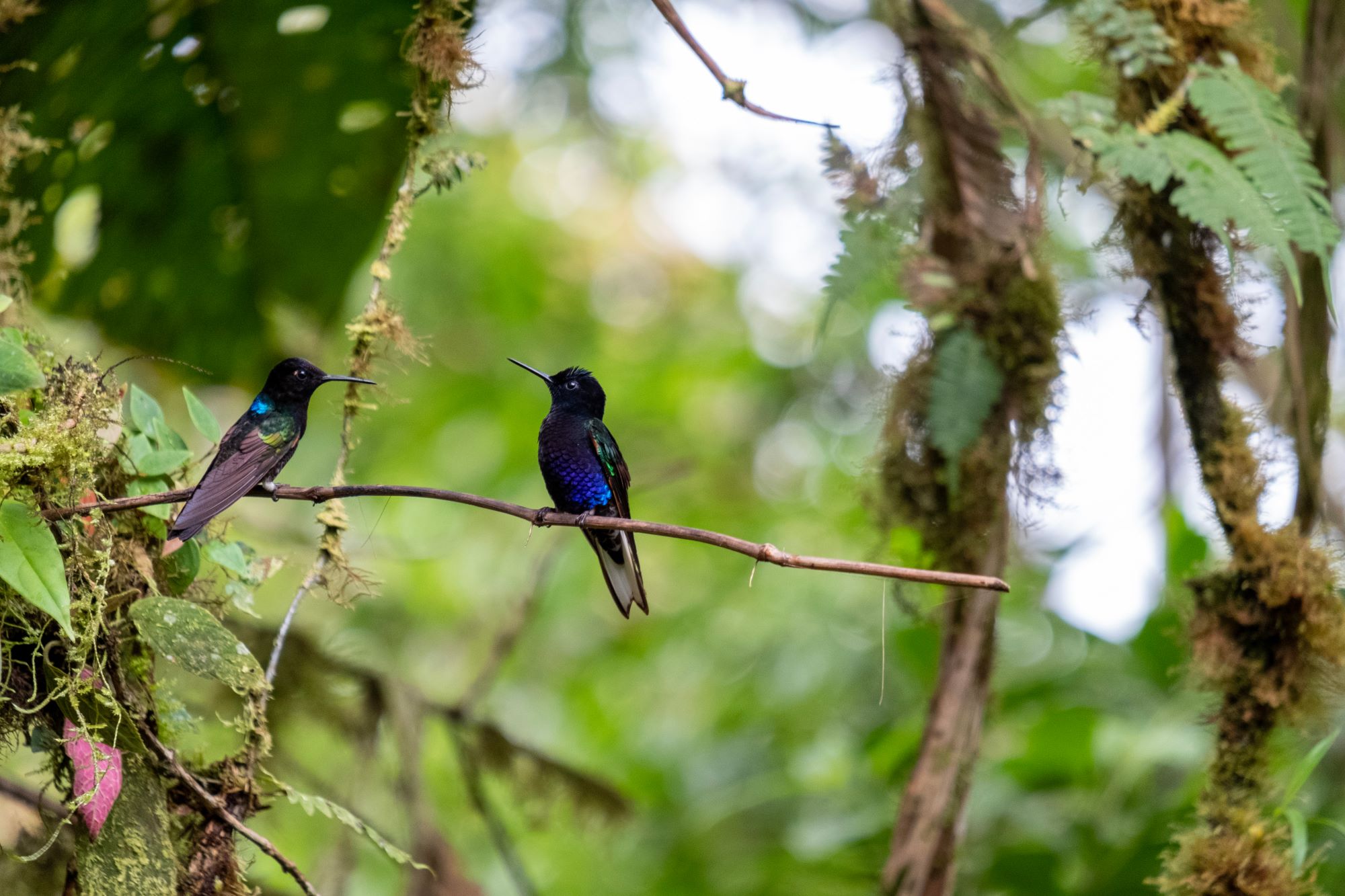
Shutterstock
[ad_2]
Source link

